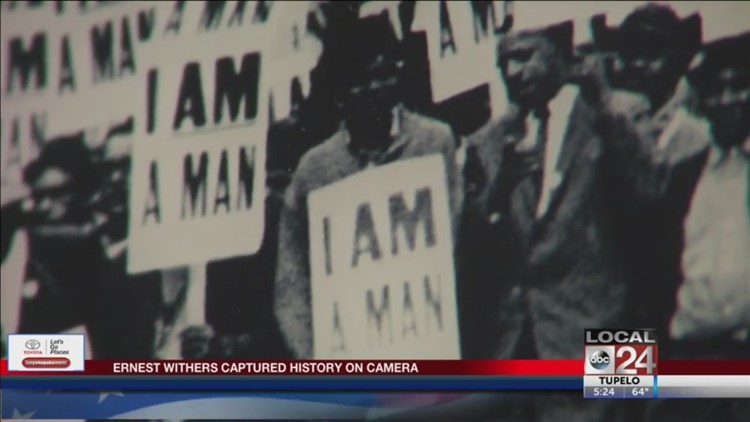As we approach the 50th anniversary of Dr. Martin Luther King’s death we highlight a man who didn’t create the iconic “I Am a Man’ phrase but he captured the words in a photograph that has sealed them in history.
Ernest Withers told stories of African-American life during the good times and the turbulent, leaving a legacy enough for us all.
“Some of the pictures you see people say “We think their daddy took them.” said Andrew Withers, Ernest Withers’ youngest son. “His son took some of those pictures.”
The fact is that all 7 of Ernest Withers’ sons were photographers.
It was only natural.
Andrew Withers says there were 4 Withers men capturing the historic “I Am a Man” march.
“There were only 2, myself and daddy at the initial stage of the march,” said Andrew Withers.
Andrew was 12 years old and recalls frightening moments when the violence of that day’s march broke out in Downtown Memphis.
“I was standing there at Beale and 3rd Street when I saw the first stick go into the air and the window broke, bam. Within a minute of that chaos broke,” said Andrew Withers.
Despite the threat of imminent danger, Andrew says his father took them into the heart of the fight.
“We knew those things were possible, but he really never just said,” said Andrew. “We knew there was the potential for violence to erupt.”
It was a courageous move, but Ernest Withers’ trademark was capturing everyday life on film.
Martin Luther wasn’t the only king photographed by Ernest Withers.
There was B.B and queens like Aretha Franklin.
Images that continue to inspire.
“Through his legacy we’ve been able to capture so many images that creates so many different conversations,” said photographer and family friend, Labrill LaGrant Shabazz Bey.
There was more to the 60’s than the civil rights movement.
Without the likes of Ernest Withers many stories of everyday life might not have been told.



